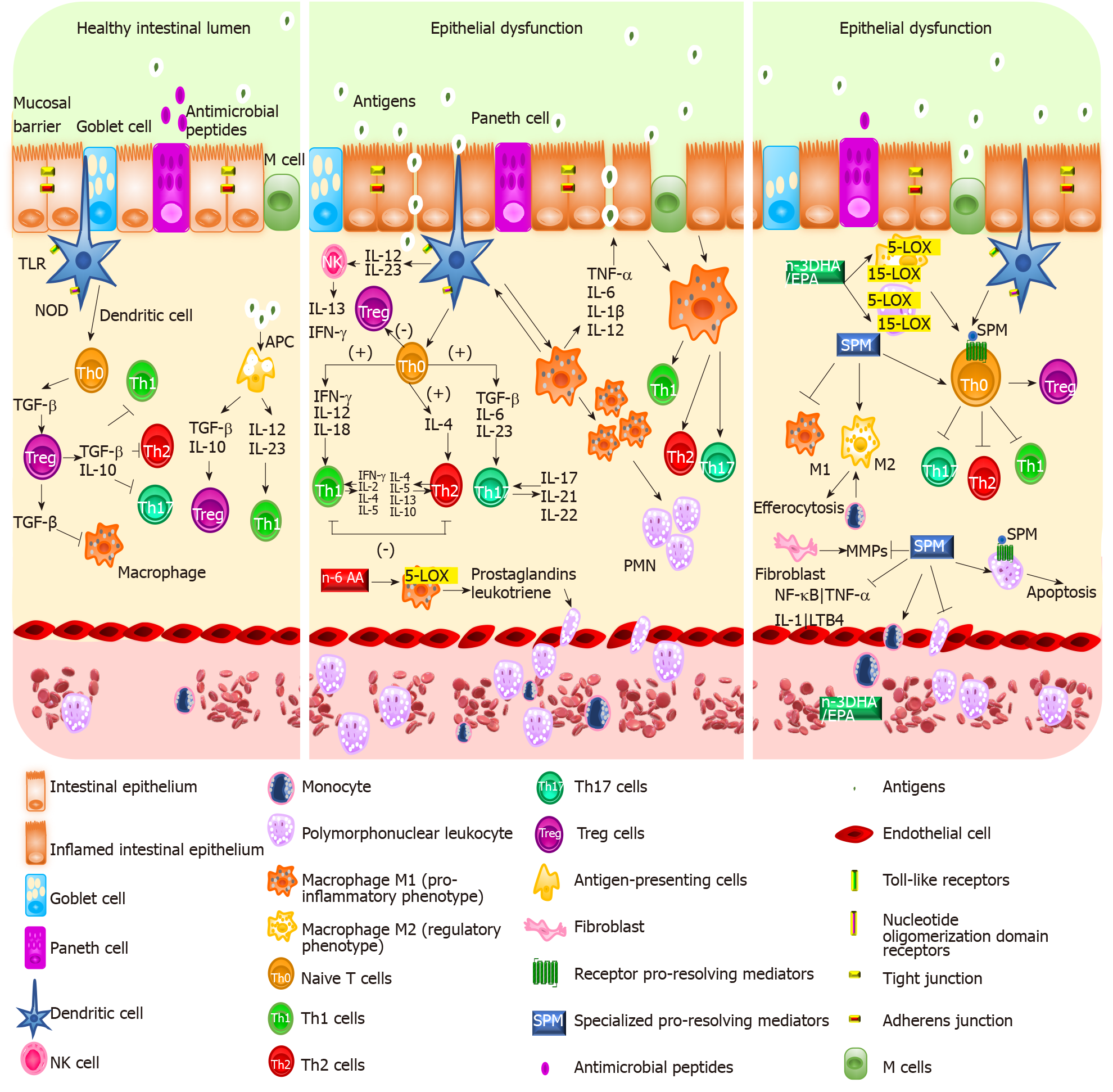Copyright
©The Author(s) 2022.
World J Exp Med. Jan 20, 2022; 12(1): 1-15
Published online Jan 20, 2022. doi: 10.5493/wjem.v12.i1.1
Published online Jan 20, 2022. doi: 10.5493/wjem.v12.i1.1
Figure 2 In the healthy intestinal epithelium, there is preservation of immunological tolerance, and maintenance of the mucous barrier and balance between the inflammatory process and its resolution.
In inflammatory bowel disease, there is a loss of intestinal barrier integrity, with consequent activation of innate and adaptive immune responses. There is an intense synthesis of pro-inflammatory mediators, such as leukotrienes and prostaglandins, derived from arachidonic acid, as well as cytokines and chemokines, which lead to the polarization of M1 macrophages, increased influx of polymorphonuclear cells, and differentiation of effector T cells to the detriment of Treg cells. Also, the inflammatory response can be contained from the action of anti-inflammatory factors and specialized pro-resolution lipid mediators (SPMs), which are derived from polyunsaturated fatty acids such as docosahexaenoic acid and eicosapentaenoic acid. SPMs are capable of interfering with the macrophage phenotype, favoring type M2, limiting the traffic of leukocytes, counter-regulating pro-inflammatory mediators, and inducing tissue regeneration. In the absence of SPMs, there may be a failure in the resolution process, leading to chronic inflammation and tissue fibrosis, associated with loss of function. LOX: Lipoxygenase; NOD: Non-obese diabetic; TGF: Transforming growth factor; IFN: Interferon; IL: Interleukin; AA: α-Linolenic acid; DHA: Docosahexaenoic acid; EPA: Eicosapentaenoic acid; TLR: Toll-like receptor; SPM: Specialized pro-resolution lipid mediators; NK: Natural killer; TNF: Tumor necrosis factor; PMN: Polymorphonuclear cell.
- Citation: Pascoal LB, Palma BB, Chaim FHM, de Castro MM, Damázio TA, Franceschini APMF, Milanski M, Velloso LA, Leal RF. New translational and experimental insights into the role of pro-resolving lipid mediators in inflammatory bowel disease. World J Exp Med 2022; 12(1): 1-15
- URL: https://www.wjgnet.com/2220-315x/full/v12/i1/1.htm
- DOI: https://dx.doi.org/10.5493/wjem.v12.i1.1









